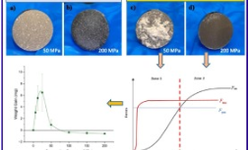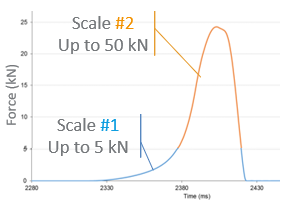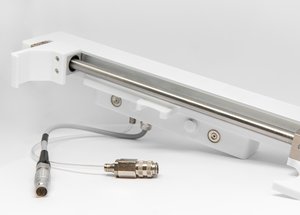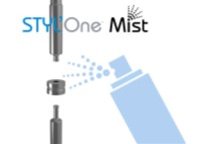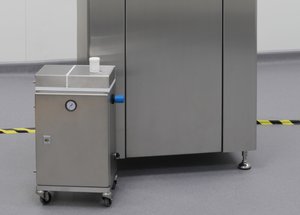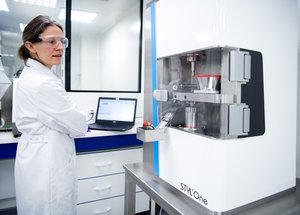Scientific papers
In this study, the utilization of magnesium stearate (MgSt) as an internal lubricant has been linked to a decrease in tensile strength and prolonged disintegration and dissolution times. The current investigation compares alternative lubricants to MgSt, examining their lubrication effectiveness and influence on tablet properties. Various concentrations (0.5 – 5% w/w) of these lubricants were combined with three fillers (lactose, mannitol, and microcrystalline cellulose (MCC)). While MgSt exhibited high lubrication efficiency, it was also associated with the most significant reduction in tensile strength.
Micronized stearic acid (SA) grades emerged as promising alternatives, demonstrating effective lubrication without a substantial negative impact on tensile strength. Hydrophobic lubricants like MgSt and SA did not contribute to disintegration prolongation. Conversely, sucrose monopalmitate, when combined with all three fillers, and certain other hydrophilic lubricants (such as sodium lauryl sulfate, poloxamers 188, and P407) combined with MCC, unexpectedly led to delayed disintegration. These unexpected outcomes were elucidated through the competition-for-water hypothesis.
This study underscores the potential of alternative lubricants to MgSt. However, it also emphasizes that the impact of lubricant addition on process and tablet quality is contingent upon the lubricant type and concentration, as well as formulation properties such as lubrication need, deformation mechanism, and disintegration behavior. Consequently, the selection of lubricants should be approached with careful consideration in formulation development.
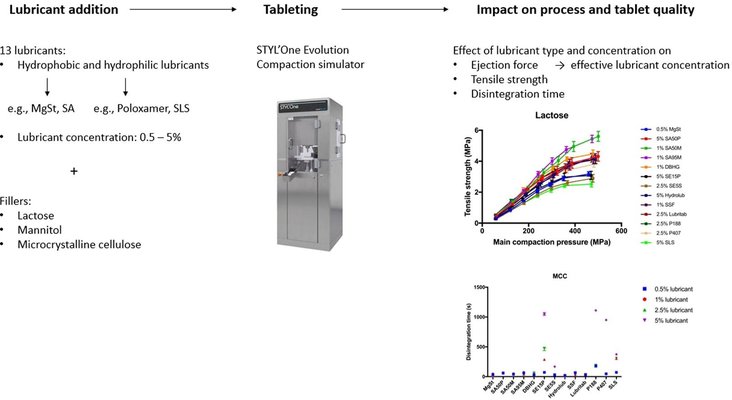
Comments
No comments posted yet.
Add a comment


